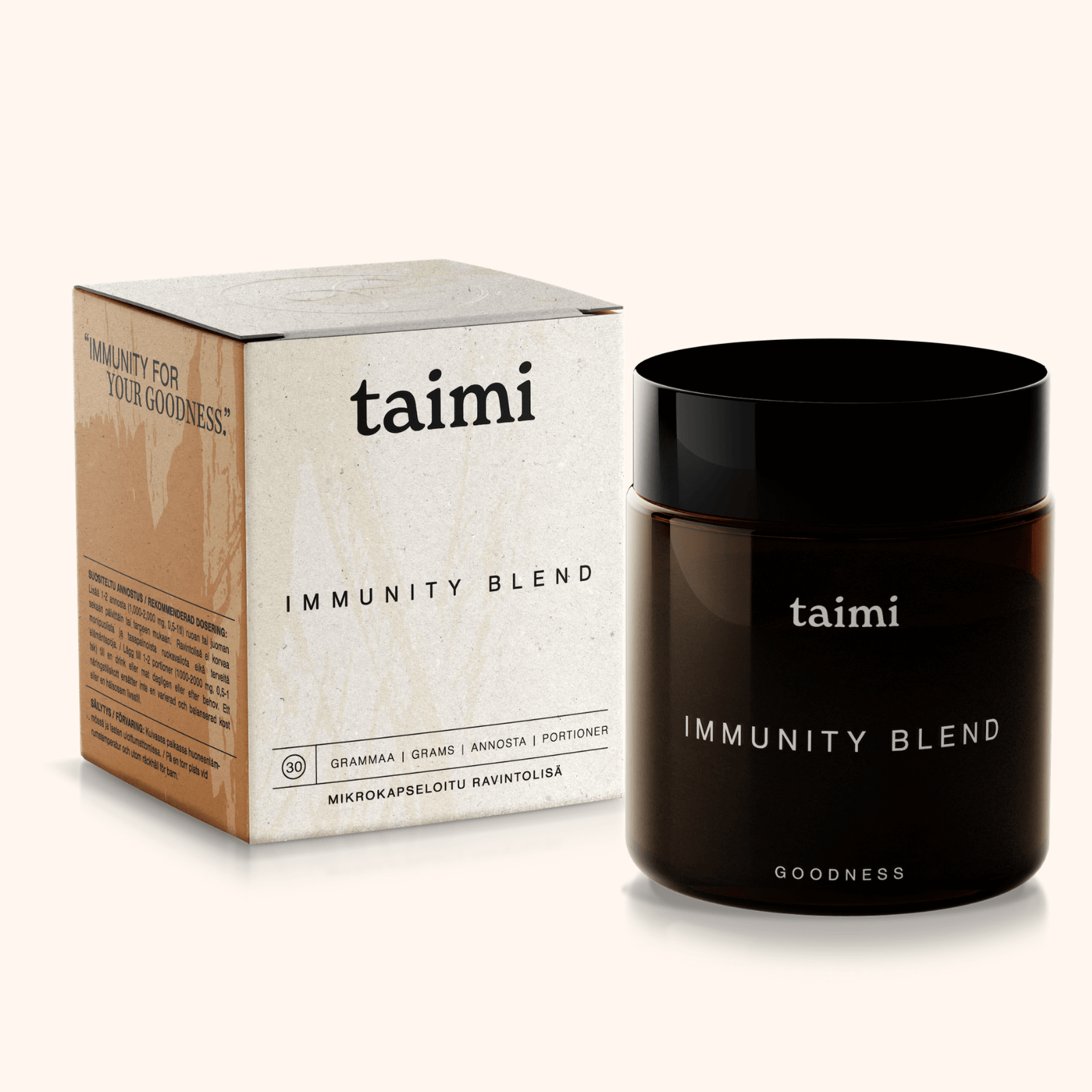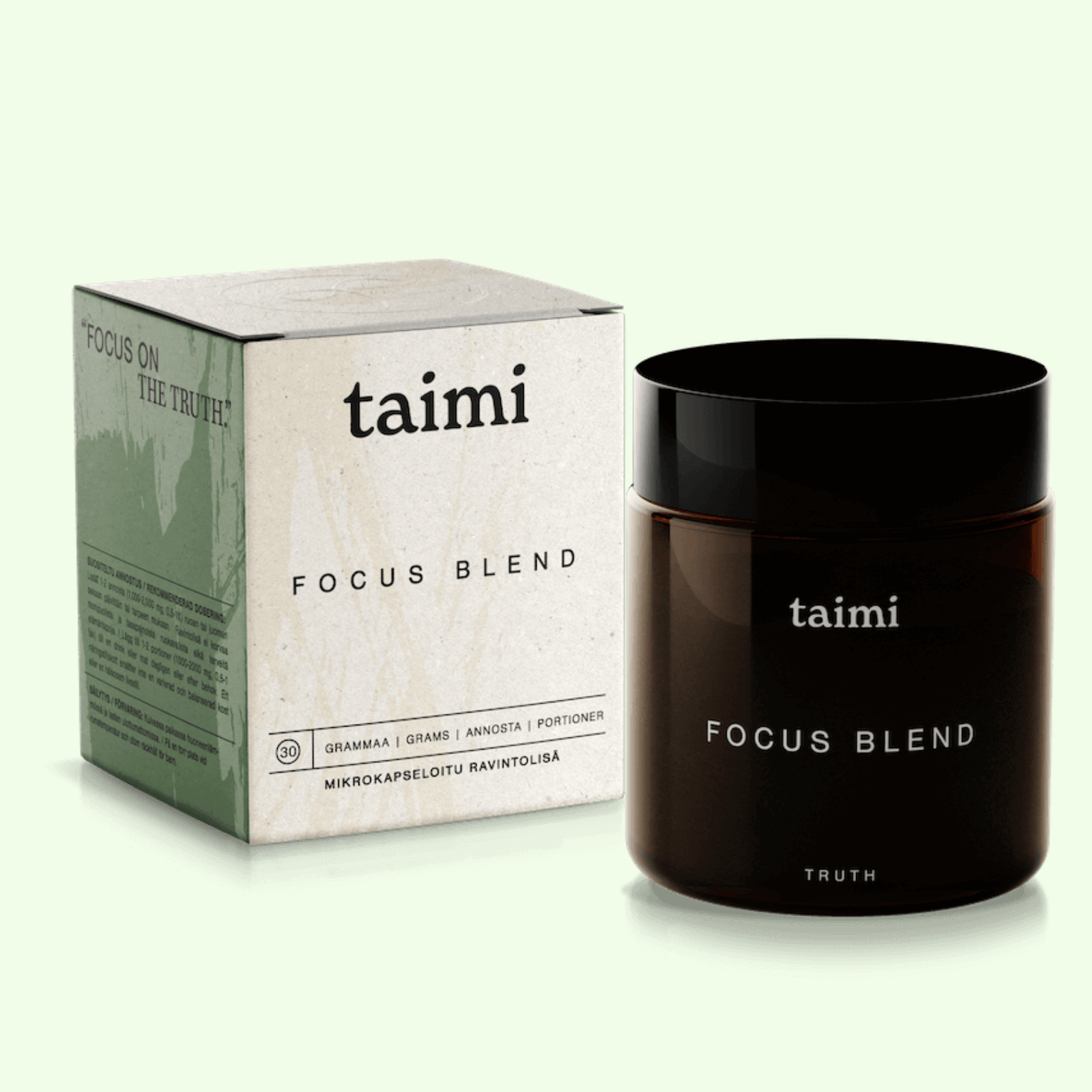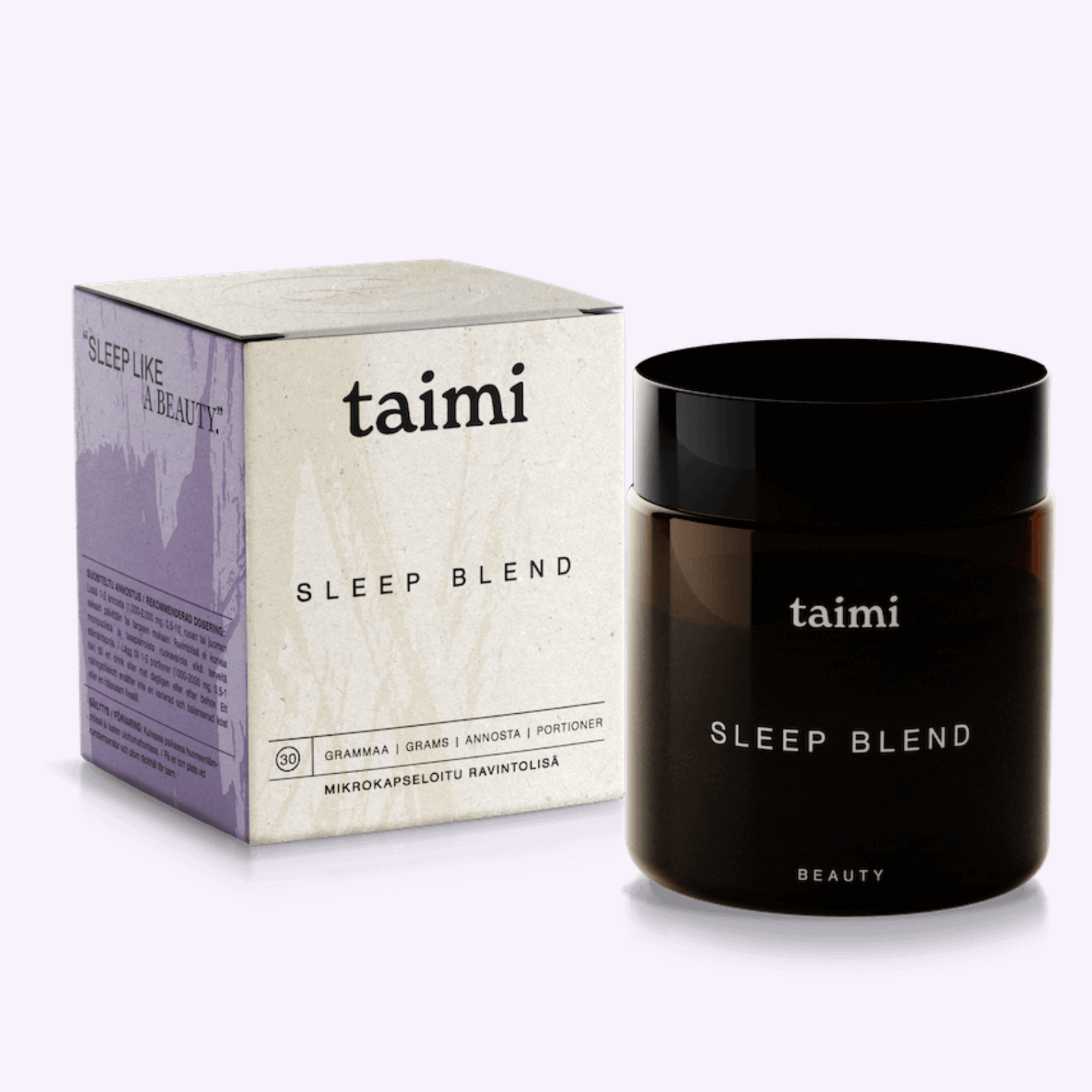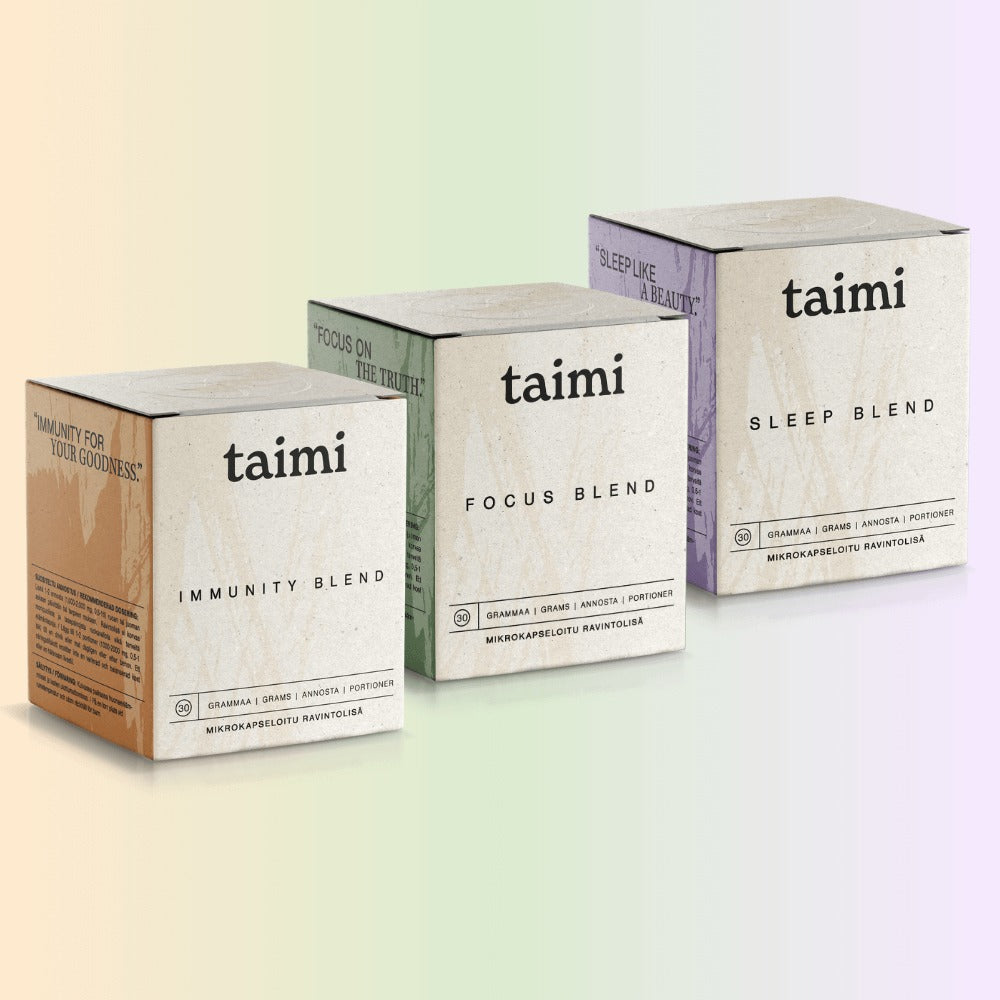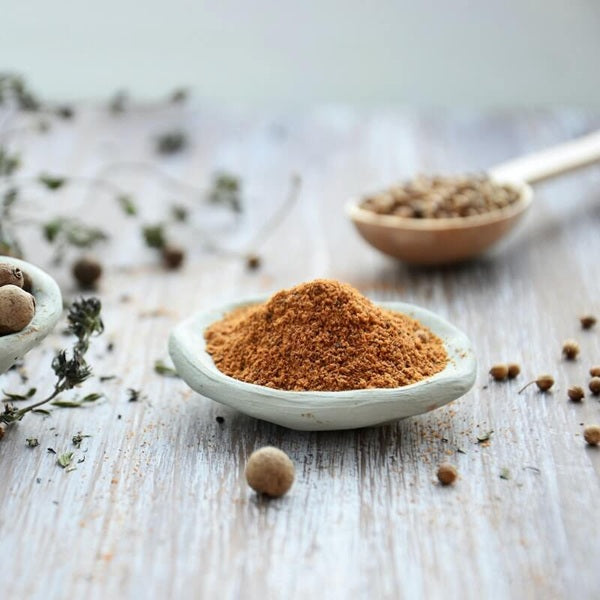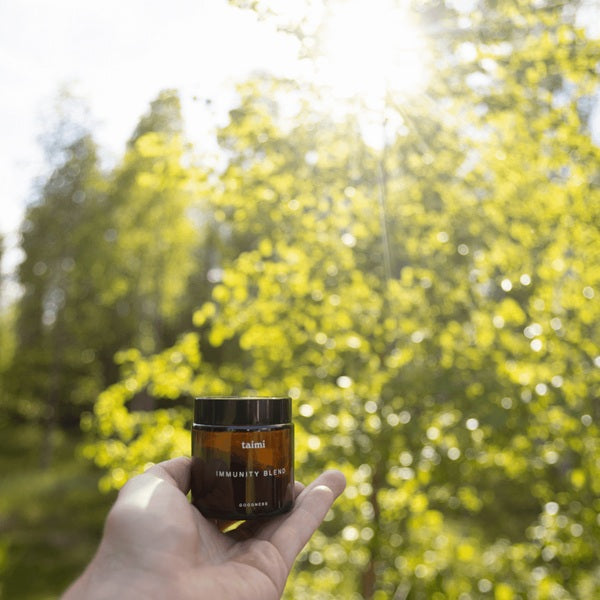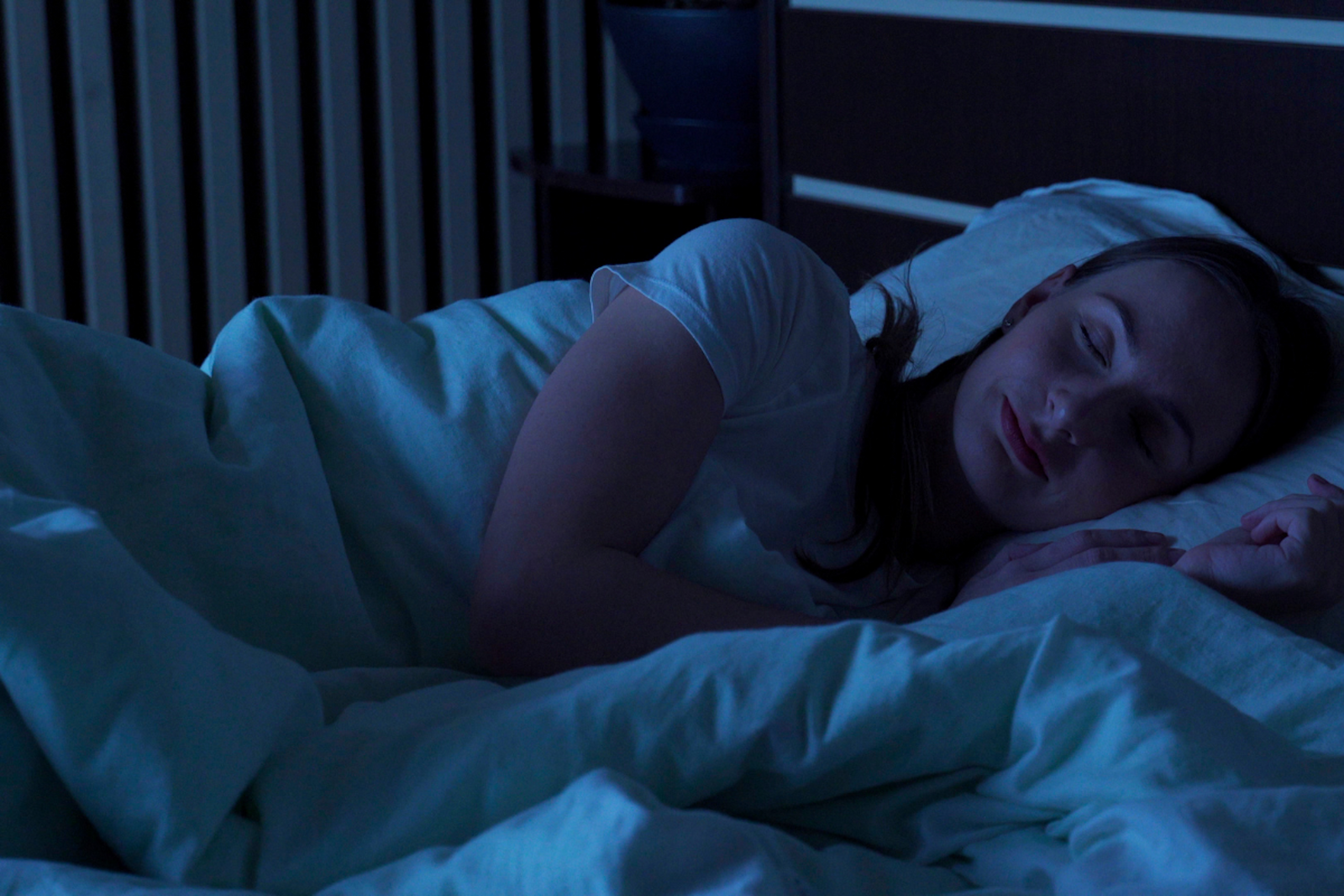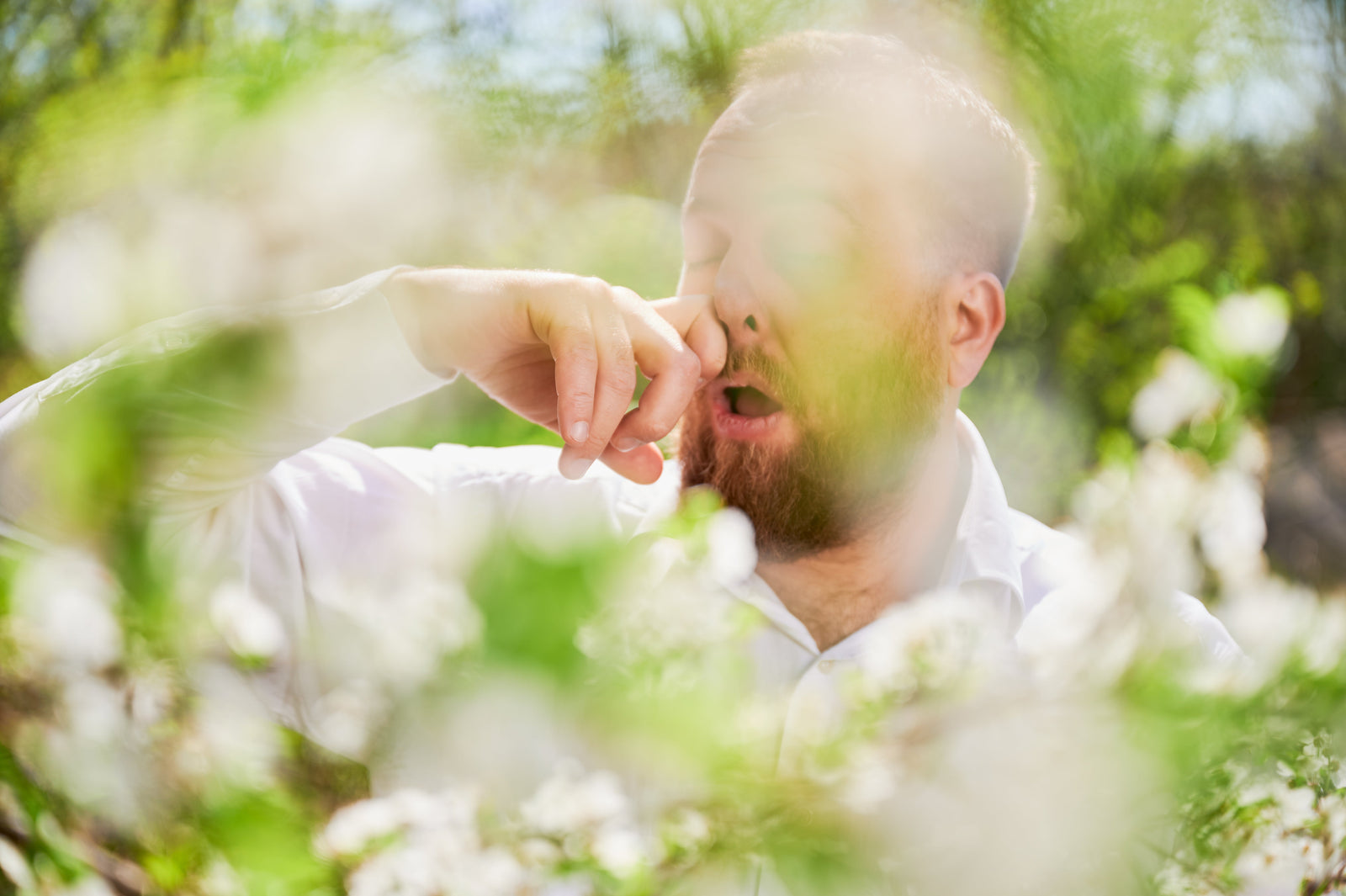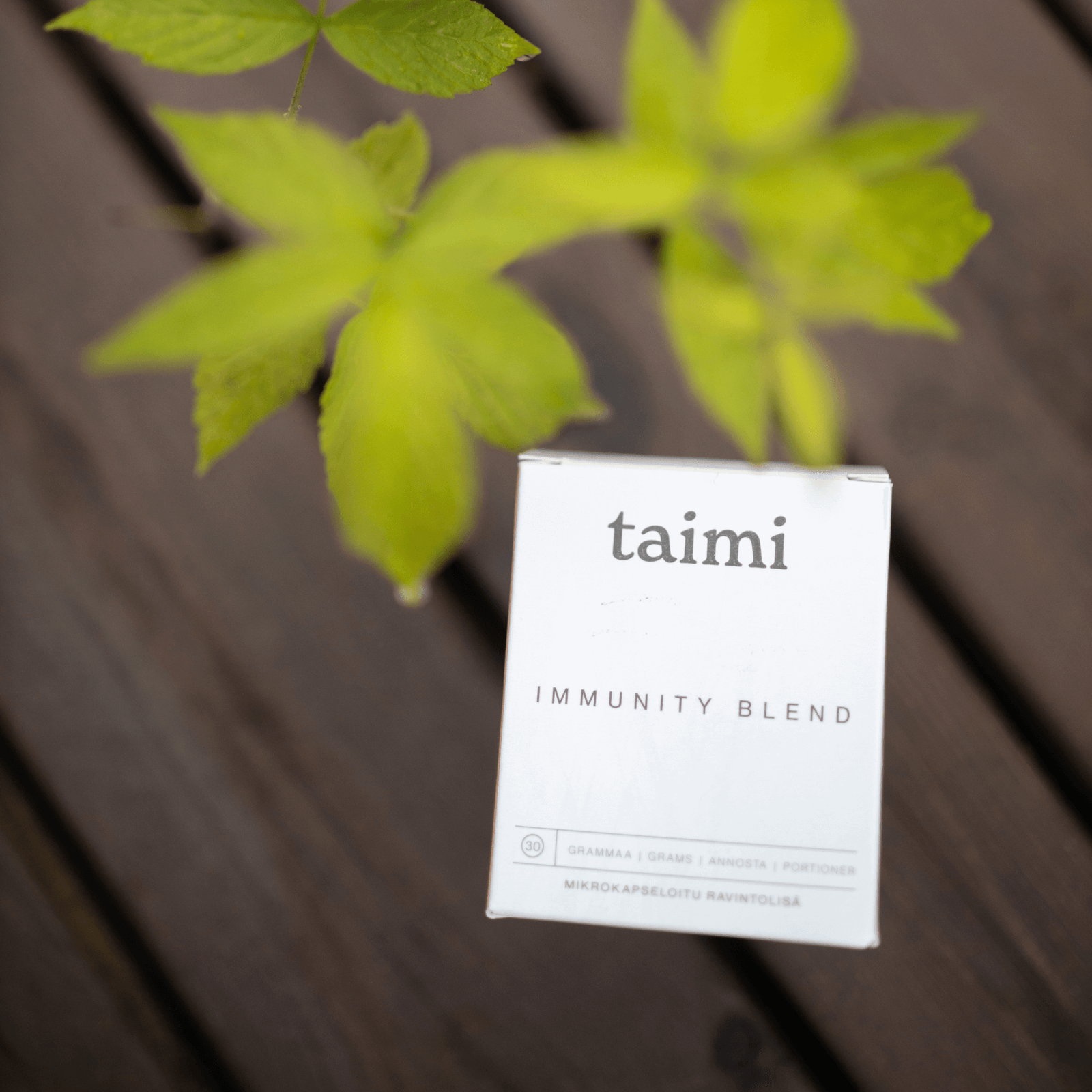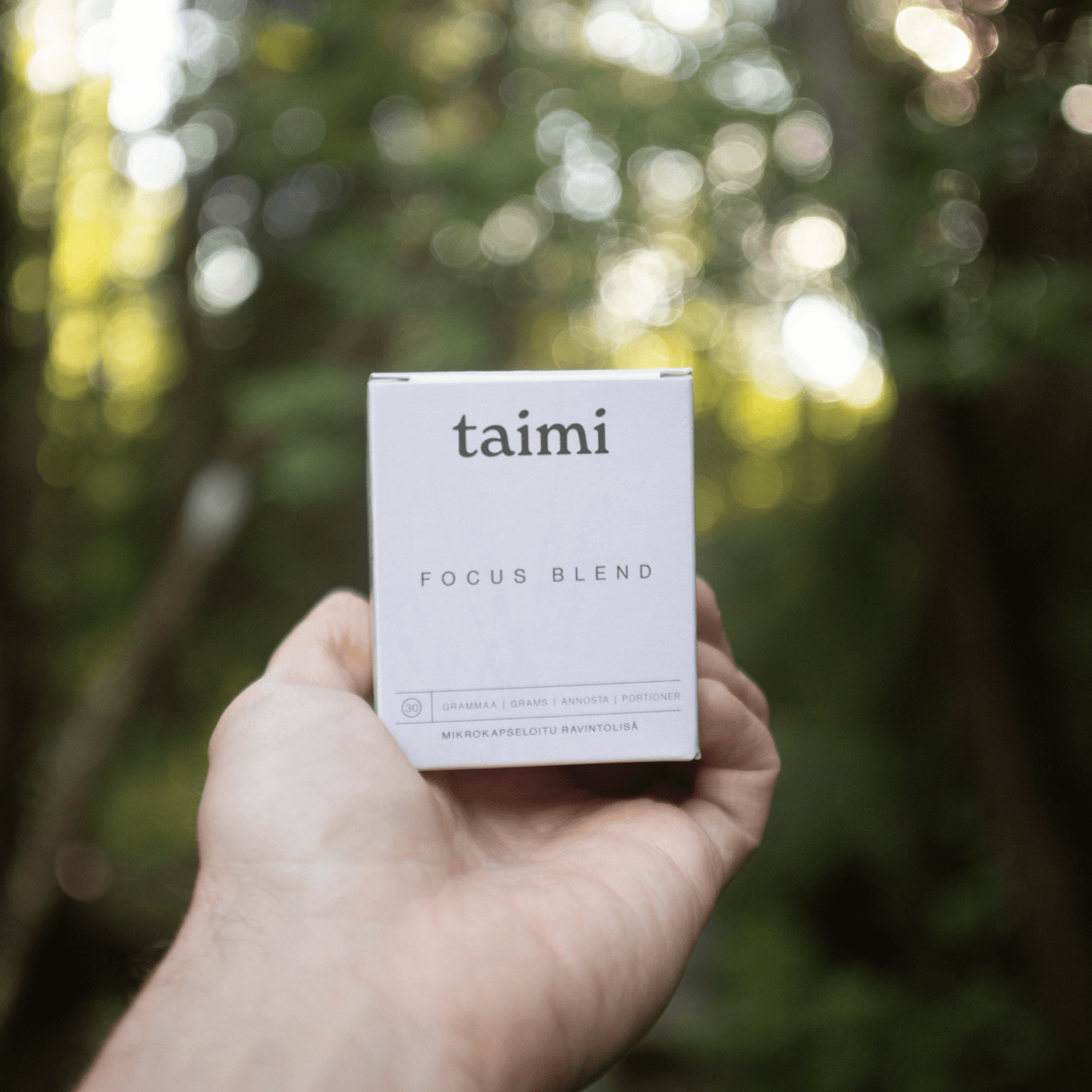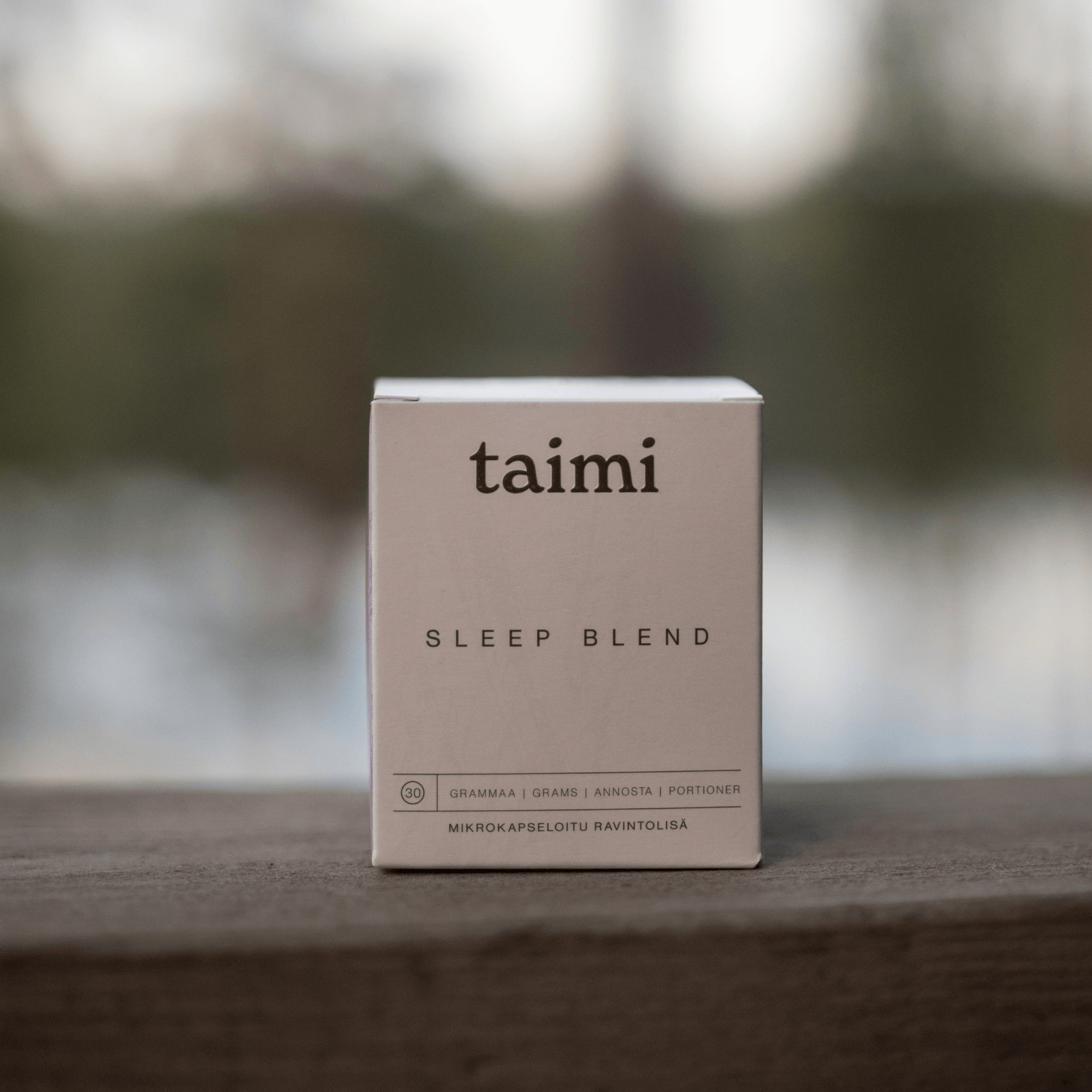The quality of our sleep greatly affects our well-being, so it's no surprise that many of us are looking for ways to improve our sleep. One commonly used aid is melatonin, known as the "sleep hormone". But what does melatonin actually do, and why doesn't it necessarily improve sleep quality? In this article, we will dig deeper into the function of melatonin and its effects on sleep.

Melatonin – the sleep hormone
Melatonin is a hormone produced by the pineal gland of the brain. Its production is regulated by light and darkness: melatonin production increases towards evening and reaches its peak at night, when it is dark, and decreases at dawn. This cycle helps regulate our sleep rhythm, also called the circadian rhythm.
How does melatonin work?
The main function of melatonin is to signal to the body that it is time to prepare for sleep. So it does not actually cause sleepiness, but controls the body's biological clock by giving a signal that it is night. This can make it easier to fall asleep, especially for those with circadian rhythm disturbances, such as due to time differences or shift work.
 It is good to put the phone on "night sleep" 0.5-1 hour before going to bed, so that the mind and body can calm down.
It is good to put the phone on "night sleep" 0.5-1 hour before going to bed, so that the mind and body can calm down.
Why doesn't melatonin improve sleep quality?
Although melatonin can help you fall asleep, it does not improve the quality of your sleep. Sleep consists of different stages (light sleep, deep sleep and REM sleep), all of which are important for good sleep. Melatonin does not affect the stages of sleep, so while it may help you fall asleep, it does not improve the depth or quality of your sleep.
Caffeine, sunlight and melatonin production
Caffeine and sunlight are two factors that significantly affect melatonin production and thus sleep. Caffeine is a stimulant that prevents adenosine from attaching to adenosine receptors in our brain. Adenosine is a neurotransmitter that accumulates in our brain when we are awake, making us sleepy and increasing the production of melatonin. When caffeine blocks these receptors, it delays the feeling of sleepiness and the production of melatonin. 
Drinking caffeine should be stopped by 6 pm at the latest so that melatonin production can function optimally.
Sunlight, especially the blue light it contains, also weakens melatonin production. Light inhibits melatonin production in the brain and helps us stay awake during the day. This is a natural part of our circadian rhythm. The intake of blue light in the evening, for example from the screens of smart devices, disrupts this rhythm, preventing the production of melatonin and thus making it difficult to fall asleep.
Limit caffeine and blue light intake
Instead of a melatonin supplement, you should pay attention to caffeine intake and exposure to blue light. Try to limit its intake from the afternoon onwards. Similarly, try to reduce blue light intake in the evening, for example by reducing the use of smart devices before going to bed or at least adjusting their screen to a warmer tone. Even these changes can help your body produce melatonin at the right time and thus improve the quality of your sleep.

Nowadays, phones have a night mode, thanks to which you can change the blue light, which is harmful to sleep, to a warm yellow light.
Improving the quality of sleep
If you want to improve the quality of your sleep, it is important to focus on holistic sleep hygiene. This means e.g. regular sleep patterns, appropriate bedroom temperature and lighting, maintaining physical activity, stress management and a healthy diet.
It's also important to remember that poor sleep quality can be a sign of an underlying health problem, such as sleep apnea or depression. If sleep difficulties continue for a long time or significantly interfere with daily life, it is a good idea to consult a healthcare professional.
When you have improved your own sleep hygiene and you still want to improve your sleep quality, you should try Sleep Blend . Sleep Blend does not contain melatonin or sedatives, but supports the quality of sleep by providing a comprehensive range of natural ingredients that support mind and body relaxation, falling asleep and quality sleep holistically.

